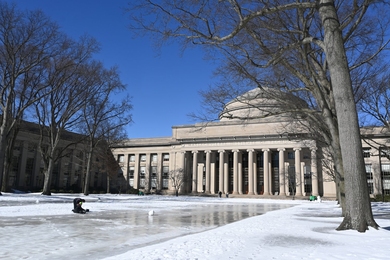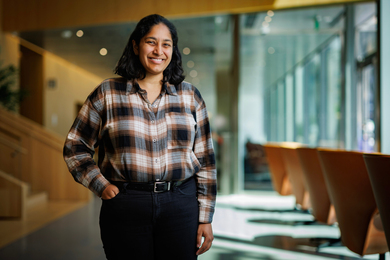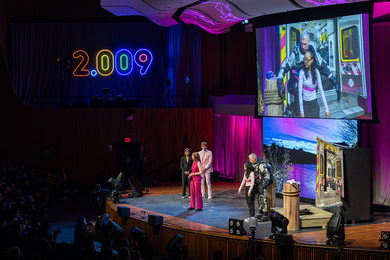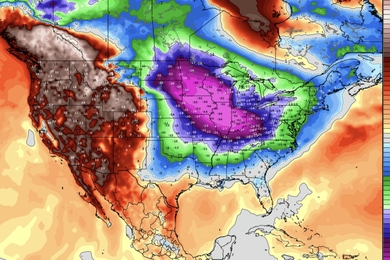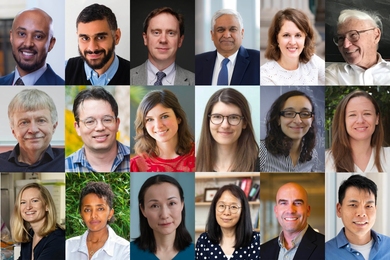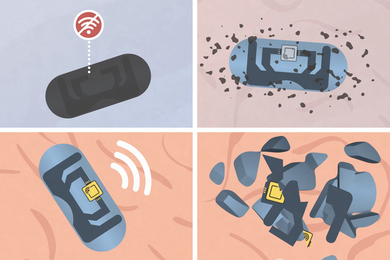The Women in Data Science Conference event in Cambridge, Massachusetts — held on Feb. 3 at the Microsoft NERD Center — brought together a full room of approximately 150 academic leaders, industry professionals, and students. The event was co-hosted by the MIT Institute for Data, Systems, and Society (IDSS), the Harvard University Institute for Applied Computational Science, and Microsoft Research New England.
The day-long event was preceded by the pre-event, “Hacking Bias and Discrimination Ideation Session,” an opportunity for participants to consider the potential for machine learning to introduce different kinds of bias in a number of contexts — and to discuss ways to mitigate this.
IDSS Executive Director Elizabeth Sikorovsky welcomed attendees to the conference, noting that the Cambridge event was just one of more than 75 Women in Data Science conferences happening worldwide. Likewise, Cathy Chute, executive director of the Harvard Institute for Applied Computational Science, commented that the full room and the extensive roster of similar events worldwide “demonstrated the power of community.”
Jennifer Chayes, distinguished scientist and managing director of Microsoft Research New England, covered a wide span of different types of networks in her presentation — ranging from computational to biological — and discussed the key considerations for modeling any type of network.
Chayes noted that, in terms of social networks, the idea of “six degrees of separation” goes back to 1929 short story by Hungarian author Frigyes Karinthy. Stanley Milgram later tested out the idea scientifically in the 1950s. More recently, Facebook has found that the level of connection between its users is in the range of 3-4 degrees.
A number of the speakers discussed impacts of data science in the medical and health care domains. Dina Katabi, the Andrew and Erna Viterbi Professor of Electrical Engineering and Computer Science at MIT, talked about the wireless technology Emerald. This smart box can monitor various health metrics without any sensors on the body and report problems to caregivers. The device can track the most subtle motions — such as breathing and the pulsing of blood from the heart — as well as the speed at which someone is walking. The latter metric, known as “gait velocity,” has become particularly helpful in understanding of progression of chronic diseases.
Jennifer Listgarten, senior researcher at Microsoft Research New England, talked about machine learning and CRISPR/Cas9, a technique for genome editing.
Caroline Uhler, the Henry L. and Grace Doherty Assistant Professor of Ocean Utilization in MIT's Department of Electrical Engineering and Computer Science, presented some her work in statistics and graphical modeling — highlighting how her work bridges mathematics and applications in areas such as weather and biology.
“We are in an era where we have a huge amount of data from technological advances, and in order to make sense of all this data and to gain into complex phenomena, we need to be able to characterize the relationships among a large number of [data points],” said Uhler. “Graphical models are one way of characterizing these relationships. The network, of course, not only enhances the credibility—particularly when you have many, many variable — but it also very often leads to inference that can be done in a computational way.”
Angela Bassa ’03, director of data science at iRobot, shared her experiences and insights from deploying various systems, presenting perspectives from both academia and industry.
“A huge tension that comes from deploying scientific or advanced academic work in industry is that one side wants to find the correct, pure proof to an answer, and the other side wants to make it run — and make it run in scalable, maintainable way,” said Bassa. “We want to bring that tension of the more academic end of the spectrum — and the more business end of the spectrum — together.”
The event also featured a livestream of Diane Greene MS ’78, senior vice president in charge of Google's cloud business, speaking at the Women in Data Science conference at Stanford University.
The day was capped off with a panel discussion moderated by Margo Seltzer, professor of computer science and director of the Center for Research on Computation and Society at Harvard. During the panel discussion, audience members engaged the panelists in questions about bias, mentors, and work-life issues. There was also a question of whether the field of data science itself might be or might become “too hyped.”
“It doesn’t really matter whether the field of data science is ‘too hyped’ or not,” responded Katabi. “Regardless, it will deliver amazing research — particularly because it is bringing in so many different disciplines.”
Some 150 academic leaders, industry professionals, and students gather in Cambridge as part of a worldwide Women in Data Science event.
Publication Date:
Press Contact:

Caption:
Jennifer Chayes, distinguished scientist and managing director of Microsoft Research New England, speaks at the Women in Data Science Conference.
Credits:
Photo: Dawn Colquitt-Anderson/MIT IDSS

Caption:
Elizabeth Sikorovsky, executive director of MIT's Institute for Data, Systems, and Society welcomes attendees to the Women in Data Science Conference in Cambridge, Massachusetts.
Credits:
Photo: Dawn Colquitt-Anderson/MIT IDSS

Caption:
Professor Dina Katabi talks about wireless technology that can monitor important health metrics.
Credits:
Photo: Dawn Colquitt-Anderson/MIT IDSS

Caption:
Professor Caroline Uhler talks about her work in statistics and graphical modeling.
Credits:
Photo: Dawn Colquitt-Anderson/MIT IDSS
